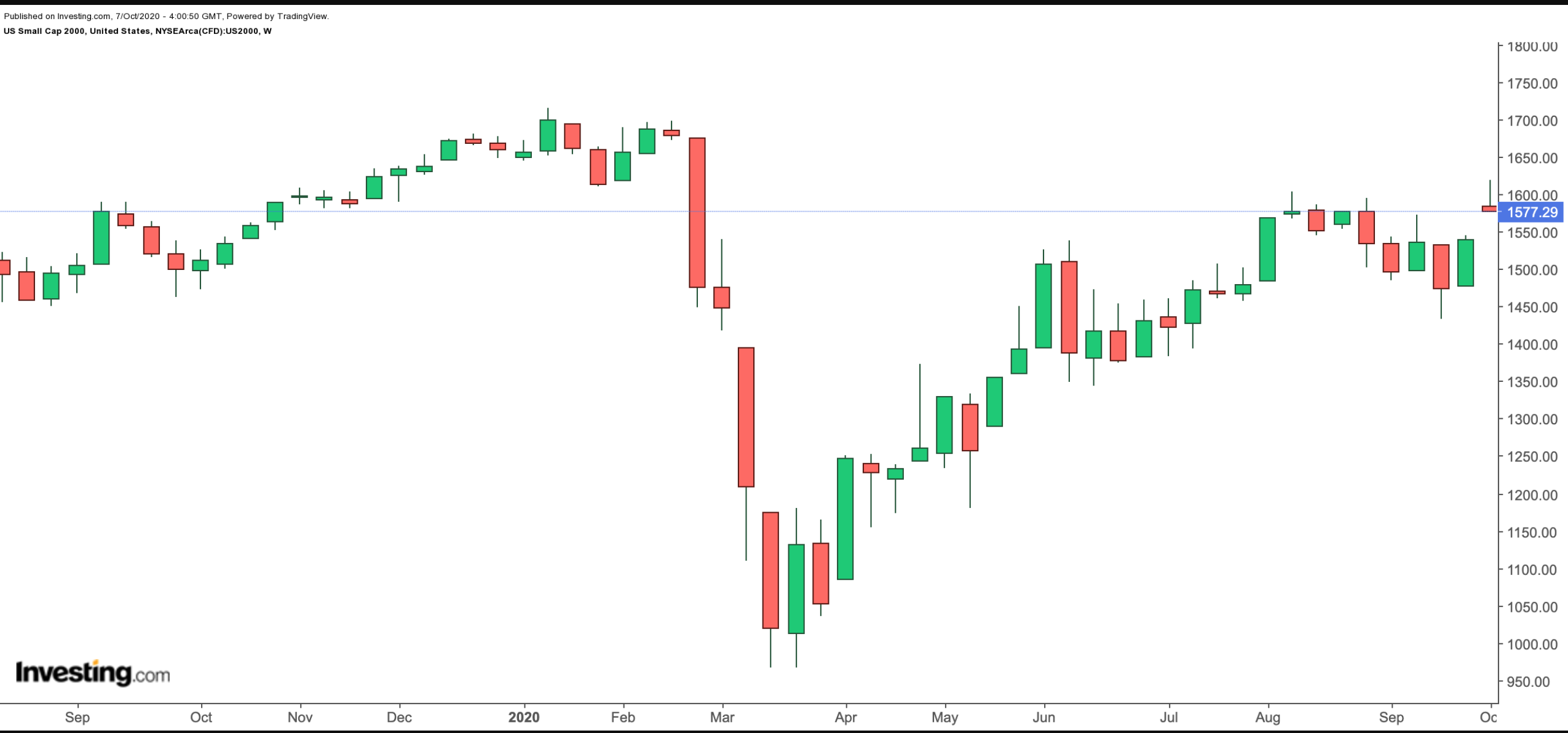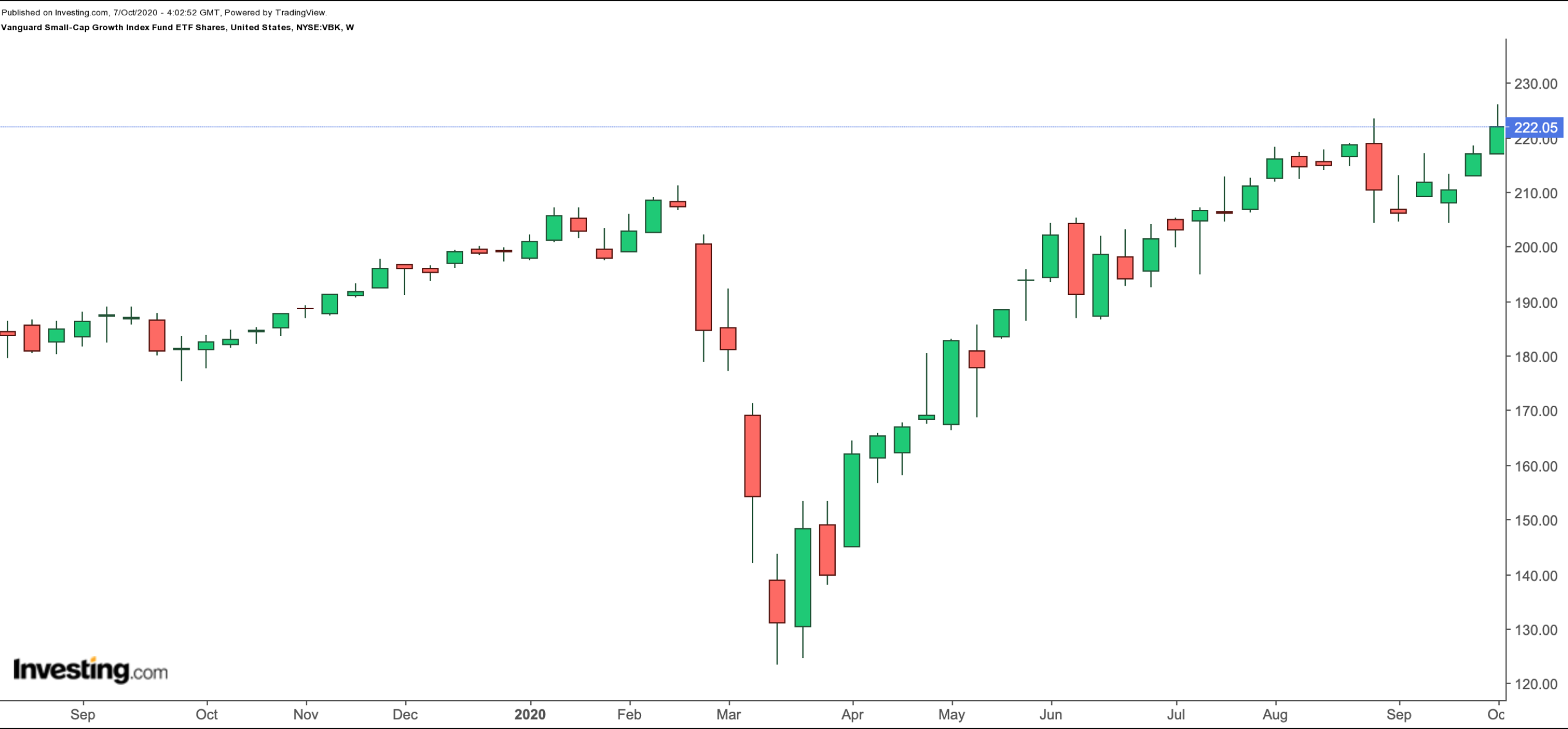As broader markets face continued pressure, many investors are hunting for the next big opportunity. Viewed through that lens, one area gaining attention issmall-capitalization stocks and the exchange-traded funds (ETFs) that track them.
We've previously discussed the small-cap Russell 2000 index and the iShares Russell 2000 ETF (NYSE:IWM) that tracks it. So far in the year, the Russell 2000 is down about 7%.

Conversely, the broader S&P 500 index is up about 4%. As a result, market participants wonder if now could be an appropriate time for rotation from large-caps into small-caps.
We believe in the value of holding a diversified portfolio, especially by retail investors who do not want to worry much about short-term volatility in the markets. Therefore, investing in small-caps could be appropriate for many investors. However, before hitting the "buy" button, it's important to learn more about these stocks and the ETFs that hold them.
Small-Caps Mean More Domestic Focus
In the U.S., a small-cap firm generally has a market cap of between $150 million and $2 billion. The calculation of the market cap, of course, is simply the function of multiplying the number of shares outstanding by the current share price. For example, a company with 20 million shares selling at $25 a share would have a market cap of $500 million.
We should note that ETFs that advertise as small-cap may own a wide range of stocks, some of which may be mid-caps by definition, meaning they have capitalizations between $2 billion and $20 billion. However, these figures should only act as guides as they may differ among brokers and countries.
Small-cap stocks typically have a more domestic focus than large-caps, as about 80% of their revenues come from operations in their home country. Therefore, the strength of the U.S. economy becomes especially crucial for the performance of U.S.-based small-caps.
Since March, economists have understandably been debating the shape of a potential recovery in the U.S. economy. In June, the National Bureau of Economic Research (NBER) officially declared the U.S. to be in recession. Such an economic development, in general, does not bode well for small-cap stocks.
On the other hand, we are witnessing high levels of U.S. fiscal and monetary stimulus, as well as rock-bottom interest rates. These factors are likely to support small businesses whose earnings are not always strong or stable. During this new earnings season, we will likely see downward revisions to small-cap earnings per share (EPS). Investors may want to analyze the upcoming quarterly metrics before committing capital into these firms.
Another point to highlight is the index sector weights of small-caps, which tend to be dominated by cyclical industries like financials, real estate investment trusts (REITs) and industrials. Health care and information technology (IT) follow cyclical sectors.
On the other hand, IT is the largest sector weighting in the S&P 500 (currently more than 28%), followed by health care (14.2%). Therefore, if the current economic contraction gets extended into next year, small caps may continue to underperform as a group.
Small-caps also tend to carry more debt than their large-cap counterparts. Thus, they are likely to be more leveraged, which could add to the risks when economies go south.
As a result, small caps in general offer a more high risk/high return investment proposition. Despite the risks, a small business has more room to grow as opposed to a larger one. With that information, here is a small-cap ETF that may pique investors' interest.
The Vanguard Small-Cap Growth ETF
Current Price: $$222.05
52-Week Range: $123.28 - $223.46
Dividend Yield: 0.52%
Expense Ratio: 0.07%
The Vanguard Small-Cap Growth Index Fund ETF Shares (NYSE:VBK) provides exposure to a range of small growth companies.

VBK, which has 590 holdings, tracks the CRSP US Small Cap Growth index. The 10 largest holdings constitute 8.7% of net assets, which stand at $28 billion.
Among those top names are Coupa Software (NASDAQ:COUP), Horizon Pharma (NASDAQ:HZNP), Teladoc (NYSE:TDOC), Zillow (NASDAQ:Z), (NASDAQ:ZG), Etsy (NASDAQ:ETSY) and Teradyne (NASDAQ:TER).
The fund has a high allocation towards both technology and health care (each around 24%), followed by industrials, consumer services and financials. Given the trends we are seeing during the pandemic, a number of tech and health care companies in the fund can become takeover candidates, which would create shareholder value.
Year-to-date, VBK is up about 10%. Since the lows seen in March, the fund has returned over 75% and hit an all-time high on Sept. 2. As a result, its trailing P/E (34.8) and P/B (4.2) ratios have become quite richly valued. Given the increased volatility levels in the market, short-term profit-taking is likely. A drop toward $210 would improve the margin of safety for long-term investors.
On a final note, investors who are experienced with derivatives could be interested to know options are also available on the fund. For example, an at-the-money (ATM) or slightly in-the-money (ITM) covered call could be appropriate for hedging purposes. Such a strategy would help decrease overall portfolio volatility, provide some downside protection and allow investors to participate in a potential up move, too.
